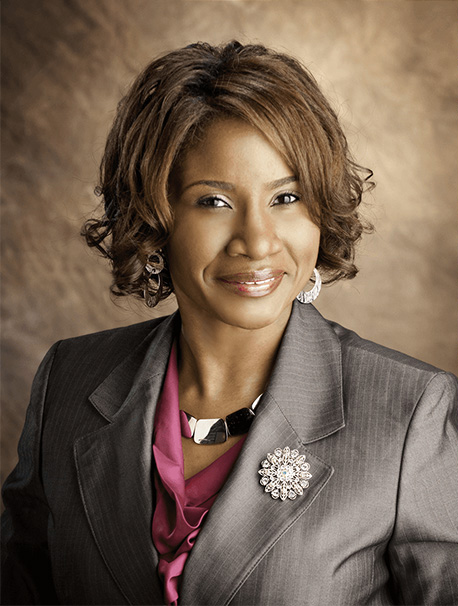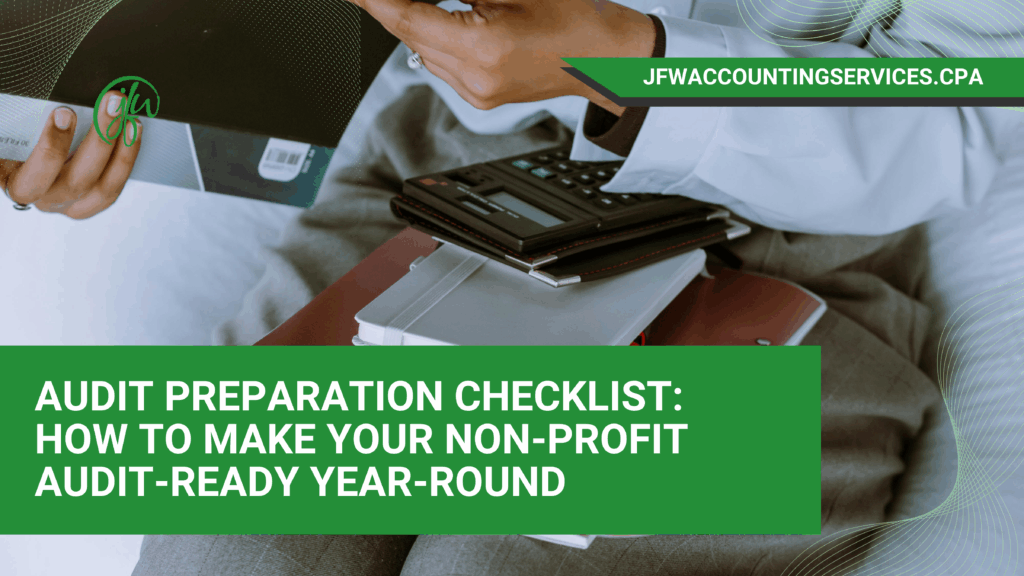At times some nonprofit organizations often treat audit preparation as a seasonal task, scrambling to gather documents and reconcile accounts when auditors arrive. This approach creates unnecessary stress, increases costs, and can lead to audit findings that could have been prevented. Year-round audit readiness requires consistent documentation practices, maintained internal controls, and organized financial records that support your organization’s mission and build donor confidence.
Essential Nonprofit Audit Checklist Documentation
Start with establishing clear documentation standards across all financial transactions. Every expense, donation, and program expenditure should have supporting documentation that includes date, amount, purpose, and authorization. Create digital filing systems that categorize documents by year, month, and transaction type. This nonprofit audit checklist organization allows quick retrieval during audits and daily operations.
Grant documentation requires special attention. Maintain separate files for each grant that include the original award letter, budget modifications, progress reports, and receipts for allowable expenses. Track restricted funds separately from unrestricted funds throughout the year, not just during audit season.
Internal Controls Framework
Develop written policies that address authorization levels, segregation of duties, and approval processes. Board members should review and approve these policies annually. Key areas requiring formal policies include expense reimbursement, procurement procedures, bank reconciliation processes, and investment management.
Segregation of duties prevents fraud and errors. The person who records transactions should not be the same person who authorizes payments or reconciles bank statements. In smaller organizations where complete segregation may not be possible, implement compensating controls such as board oversight of financial statements and dual signatures on checks above a certain threshold.
Regular bank reconciliations should occur monthly, with variances investigated and resolved promptly. Establish a process where someone other than the bookkeeper reviews and signs off on completed reconciliations.
Financial Record Maintenance
Maintain an accurate chart of accounts that reflects your organization’s structure and reporting needs. Review account classifications quarterly to ensure consistency with previous years and auditor expectations. Changes to the chart of accounts should be documented with explanations.
Track functional expenses throughout the year by classifying costs as program services, management and general, or fundraising expenses. This classification supports Form 990 preparation and demonstrates program efficiency to donors and grantors.
Keep detailed records of in-kind donations, including date received, donor information, fair market value determination method, and how items were used. Volunteer hour tracking should include dates, activities performed, and fair value calculations based on appropriate wage rates.
Audit Checklist: Monthly and Quarterly Requirements
Create monthly closing procedures that include reviewing all account balances, posting accrual entries, and generating financial statements as part of your nonprofit audit checklist. Close books within 10-15 business days of month-end to maintain current financial information.
Quarterly tasks should include reviewing board-designated funds, updating cash flow projections, and comparing actual results to budgets. Prepare variance analyses explaining significant differences between budgeted and actual amounts.
Conduct quarterly reviews of receivables and payables aging reports. Follow up on outstanding receivables and ensure all liabilities are recorded in the correct period.
Technology and Systems Integration
Modern accounting software can automate many compliance tasks while providing audit trails that auditors require. Cloud-based systems offer real-time access to financial data and built-in controls that support audit readiness.
Implement expense management systems that require receipt uploads and approval workflows. This technology reduces manual data entry errors and creates complete documentation packages for each transaction.
Regular system backups protect financial data and ensure business continuity. Test backup restoration procedures annually to verify data integrity.
Staff Training and Responsibilities
Train all staff involved in financial processes on proper documentation requirements and internal control procedures. Staff should understand how their roles contribute to audit readiness and organizational accountability.
Create detailed procedure manuals that new employees can follow. Include screenshots, approval hierarchies, and common scenarios they might encounter. Update these manuals when processes change.
Establish cross-training programs so multiple people understand key financial processes. This redundancy prevents audit delays when key personnel are unavailable.
Ongoing Compliance Monitoring
Monitor compliance with donor restrictions throughout the year, not just when preparing grant reports. Create tracking systems that alert you when spending approaches restriction limits or when reporting deadlines approach.
Review board meeting minutes quarterly to ensure all financial decisions are properly documented and implemented. Board resolutions should be clear and specific about spending authorization and policy changes.
Maintain current insurance policies, business licenses, and tax-exempt status documentation. Set calendar reminders for renewal dates to prevent lapses that could affect audit opinions.
This nonprofit audit checklist approach transforms what many nonprofits see as an annual burden into manageable daily routines. Organizations that embrace continuous preparation spend less time and money on audits while building stronger financial management practices that support long-term sustainability.
Contact us today to learn how we can help establish year-round audit readiness for your nonprofit organization. Our team provides specialized guidance on documentation systems, internal controls, and compliance procedures that keep your organization audit-ready while you focus on advancing your mission. We work with nonprofits of all sizes to develop customized audit preparation strategies that reduce stress and improve financial transparency.

Jo-Anne Williams Barnes, is a Certified Public Accountant (CPA) and Chartered Global Management Accountant (CGMA) holding a Master’s of Science in Accounting (MSA) and a Master’s in Business Administration (MBA). Additionally, she holds a Bachelor of Science (BS) in Accounting from the University of Baltimore and is a seasoned accounting professional with several years of experience in the field of managing financial records for non-profits, small, medium, and large businesses. Jo-Anne is a certified Sage Intacct Accounting and Implementation Specialist, a certified QuickBooks ProAdvisor, an AICPA Not-for-Profit Certificate II holder, and Standard for Excellence Licensed Consultant. Additionally, Jo-Anne is a member of American Institute of Certified Public Accountant (AICPA), Maryland Association of Certified Public Accountants (MACPA), and Greater Washington Society of Certified Public Accountants (GWSCPA) where she continues to keep abreast on the latest industry trends and changes.

